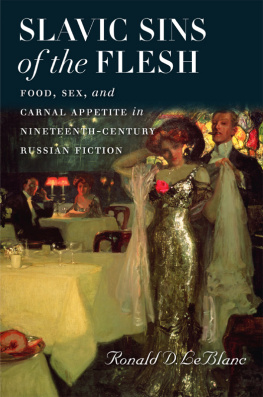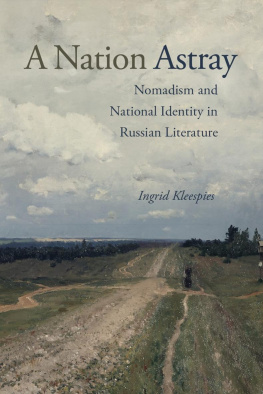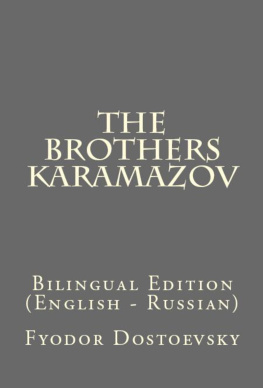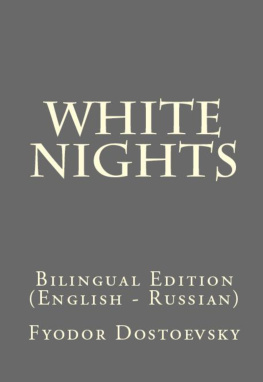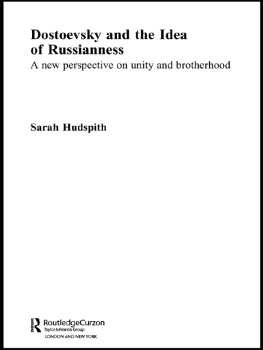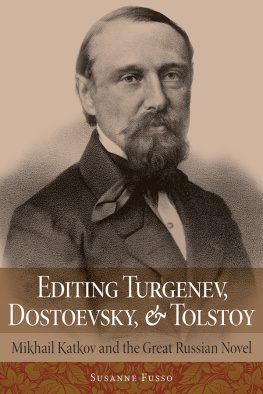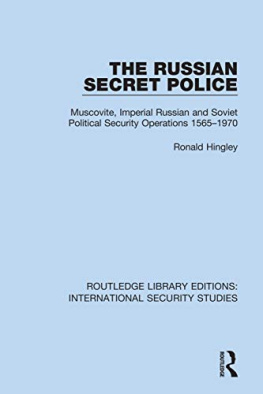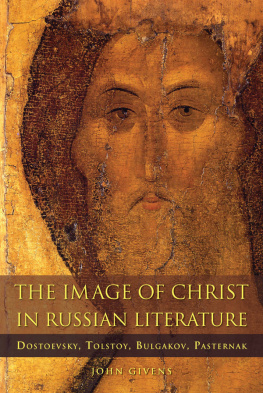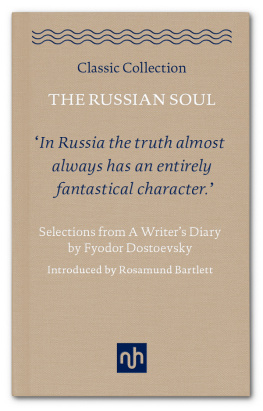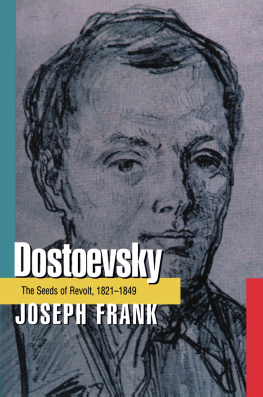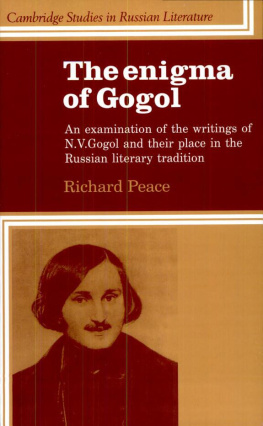BECOMING MODERN: New Nineteenth-Century Studies
Series Editors
Sarah Way Sherman, Department of English, University of New Hampshire
Janet Aikins Yount, Department of English, University of New Hampshire
Rohan McWilliam, Anglia Ruskin University, Cambridge, England
Janet Polasky, Department of History, University of New Hampshire
This book series maps the complexity of historical change and assesses the formation of ideas, movements, and institutions crucial to our own time by publishing books that examine the emergence of modernity in North America and Europe. Set primarily but not exclusively in the nineteenth century, the series shifts attention from modernitys twentieth-century forms to its earlier moments of uncertain and often disputed construction. Seeking books of interest to scholars on both sides of the Atlantic, it thereby encourages the expansion of nineteenth-century studies and the exploration of more global patterns of development.
For a complete list of books that are available in this series, see www.upne.com
Ronald D. LeBlanc, Slavic Sins of the Flesh: Food, Sex, and Carnal Appetite in Nineteenth-Century Russian Fiction Barbara Penner, Newlyweds on Tour: Honeymooning in Nineteenth-Century America
Christine Levecq, Slavery and Sentiment: The Politics of Feeling in Black Atlantic Antislavery Writing, 17701850
Jennifer J. Popiel, Rousseaus Daughters: Domesticity, Education, and Autonomy in Modern France
Paula Young Lee, editor, Meat, Modernity, and the Rise of the Slaughterhouse
Duncan Faherty, Remodeling the Nation: The Architecture of American Identity, 17761858
Jennifer Hall-Witt, Fashionable Acts: Opera and Elite Culture in London, 17801880
Scott Molloy, Trolley Wars: Streetcar Workers on the Line
William C. Dowling, Oliver Wendell Holmes in Paris: Medicine, Theology, and the Autocrat of the Breakfast Table
Betsy Klimasmith, At Home in the City: Urban Domesticity in American Literature and Culture, 18501930
Sarah Luria, Capital Speculations: Writing and Building Washington, D.C.
David L. Richards, Poland Spring: A Tale of the Gilded Age, 18601900
Angela Sorby, Schoolroom Poets: Childhood, Performance, and the Place of American Poetry, 18651917
William M. Morgan, Philanthropists in Disguise: Gender, Humanitarianism, and Complicity in U.S. Literary Realism
Piya Pal-Lapinski, The Exotic Woman in Nineteenth-Century British Fiction and Culture: A Reconsideration
Patrick H. Vincent, The Romantic Poetess: European Culture, Politics, and Gender, 18201840
Edward S. Cutler, Recovering the New: Transatlantic Roots of Modernism
Margaret M. Mulrooney, Black Powder, White Lace: The du Pont Irish and Cultural Identity in Nineteenth-Century America
Stephen Carl Arch, After Franklin: The Emergence of Autobiography in Post-Revolutionary America, 17801830
Justin D. Edwards, Exotic Journeys: Exploring the Erotics of U.S. Travel Literature, 18401930
University of New Hampshire Press
Published by University Press of New England,
One Court Street, Lebanon, NH 03766
www.upne.com
2009 by University of New Hampshire Press
All rights reserved. No part of this book may be reproduced in any form or by any electronic or mechanical means, including storage and retrieval systems, without permission in writing from the publisher, except by a reviewer, who may quote brief passages in a review. Members of educational institutions and organizations wishing to photocopy any of the work for classroom use, or authors and publishers who would like to obtain permission for any of the material in the work, should contact Permissions, University Press of New England, One Court Street, Lebanon, NH 03766.
Library of Congress Cataloging-in-Publication Data
LeBlanc, Ronald Denis.
Slavic sins of the flesh : food, sex, and carnal appetite in nineteenth-century Russian fiction / Ronald D. LeBlanc.
p. cm.(Becoming modern: new nineteenth-century studies)
Includes bibliographical references and index.
ISBN 978-1-58465-767-5 (cloth : alk. paper)
ISBN 978-1-58465-824-5 (eBook)
1. Tolstoy, Leo, graf, 18281910Criticism and interpretation. 2. Dostoyevsky, Fyodor, 18211881Criticism and interpretation. 3. Pleasure in literature. 4. Desire in literature. 5. Food in literature. 6. Sex in literature. 7. Russian fiction19th centuryHistory and criticism. I. Title.
PG3415.P55L43 2009
891.73'309353dc22 2009006594
Acknowledgments
This book project grew out of a stimulating conference sponsored by the Russian Research Center (now the Davis Center for Russian and Eurasian Studies) at Harvard University held back in 1993. The event was co-organized by Musya Glants and Joyce Toomre, who subsequently coedited the collection of essays that resulted from the conference, Food in Russian History and Culture (1997). The two essays of mine that appeared in that volumeone on Dostoevsky, the other on Tolstoyprovided the foundation for this current study, which builds upon the contrasting gastrosexual poetics of these two Russian literary giants that I had outlined there.
My initial interest in examining food imagery and eating metaphors in Russian literature was generated several years earlier by a lecture I attended, Thought for Food: Comedy and Gastronomy in Molires Theatre, delivered at Washington State University in 1986 by Ronald Tobin, a specialist in seventeenth-century French literature. Professor Tobins memorable lecture, his wise counsel, and his generous mentorship over the years have sustained my work on gastronomic and alimentary issues in literature ever since. I also acknowledge the contributions of those pioneers of gastrocriticism in the Slavic fieldespecially Darra Goldstein and Joyce Toomrewho have generously shared their considerable knowledge with me and who have consistently encouraged my work in this field. Two of my colleagues at the University of New Hampshire, historian Cathy Frierson and animal scientist Sam Smith, have likewise been valuable and generous sources of intellectual support.
My research has been facilitated by the helpful staffs at a number of libraries, primary among them, the former Lenin Library in Moscow, Widener Library at Harvard University, the Library of Congress, the Russian and East European Library at the University of Illinois at UrbanaChampaign, the Suzzallo Library at the University of Washington, and the interlibrary loan division of the Dimond Library at the University of New Hampshire. Financial support for research visits has been provided by the National Endowment for the Humanities; the Kennan Institute for Advanced Russian Studies; the American Council of Learned Societies; and the Office of Academic Affairs, the Center for the Humanities, the Center for International Education, and the College of Liberal Arts at the University of New Hampshire.
At various stages in its long gestation, this book manuscript has benefited from being read and critiqued by generous colleagues whose feedback is both highly valued and deeply appreciated. They include, among others, Richard Borden, Greg Carleton, Caryl Emerson, Donald Fanger, Michael Katz, Deborah Martinsen, Gary Saul Morson, Robin Miller, Eric Naiman, Donna Orwin, Daniel Rancour-Laferriere, James Roney, Nancy Ruttenburg, and Andrei Zorin.
I gratefully acknowledge permission from the editors and publishers listed below to reprint, in modified form, some of the following material I have previously published:
Alimentary Violence: Eating as a Trope in Russian Literature. In Times of Trouble: Violence in Russian Literature and Culture, edited by Marcus Levitt and Tatyana Novikov, pp. 15477. Madison: University of Wisconsin Press, 2007. Reprinted by permission from the University of Wisconsin Press. All rights reserved.
Next page
